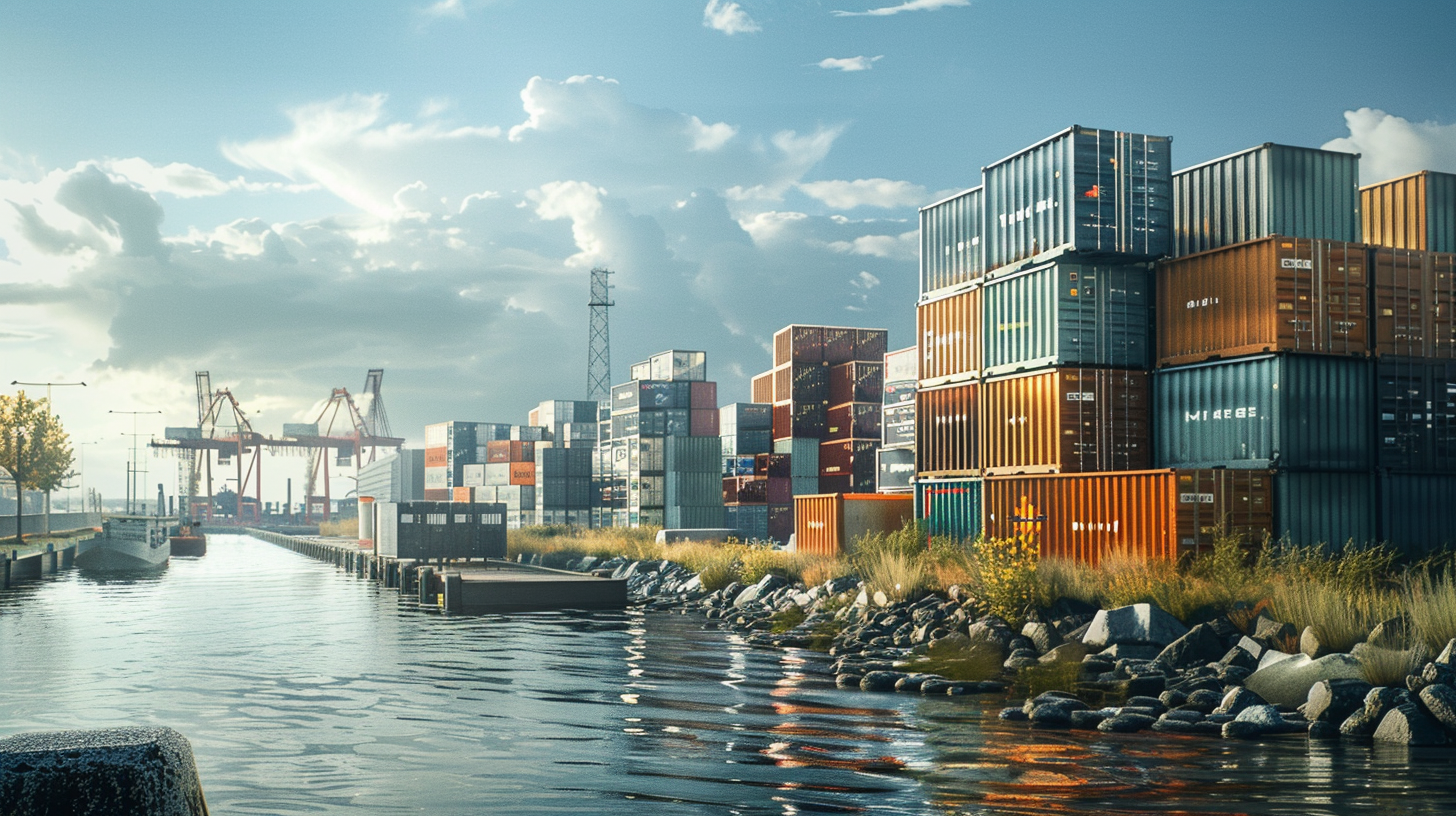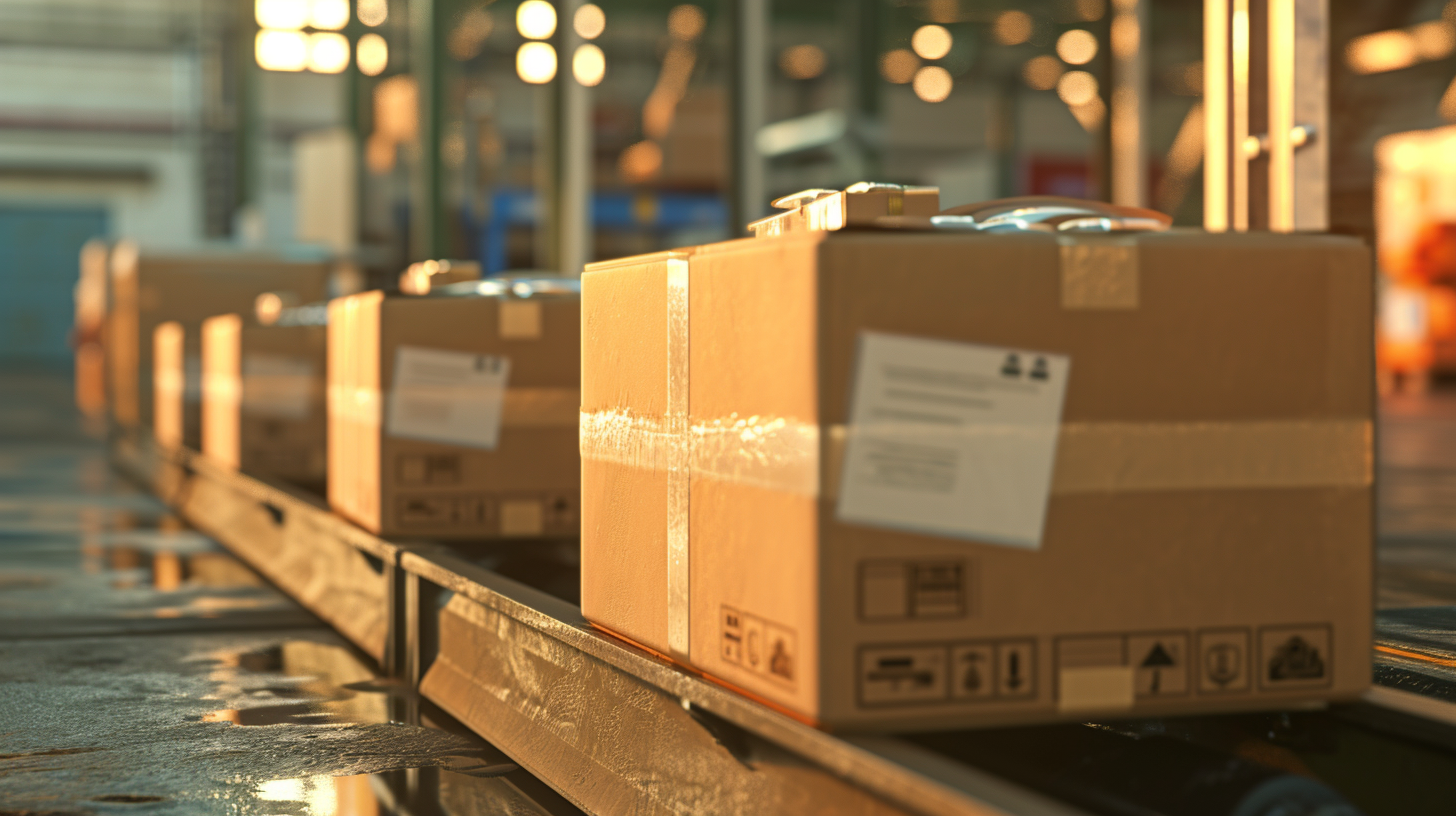What Does Freight Logistics Mean
When you think of the transportation of goods, you might think of trucks on the highway, trains moving cargo across the country, or planes flying overhead with packages and products. But have you ever stopped to think about how all of those goods get from point A to point B?
That's where freight logistics comes in. Freight logistics is the process of planning, coordinating, and executing the movement of goods from one place to another.
What Is Freight Logistics?
Freight logistics is the process of managing the movement of goods from one place to another. It includes everything from the initial planning stages to the final delivery of the products. Freight logistics involves a variety of different tasks, including:
- Planning: This involves determining the best route for transporting the goods, selecting the appropriate mode of transportation, and scheduling the shipment.
- Coordination: This involves working with carriers, freight forwarders, and other logistics providers to ensure that the shipment is properly loaded, transported, and delivered.
- Execution: This involves moving the goods from the point of origin to the point of destination. This can include everything from loading and unloading the goods to tracking their progress along the way.
Why Is Freight Logistics Important?
Freight logistics is important for several different reasons. First and foremost, it helps to ensure that goods are transported safely and efficiently. By carefully planning and coordinating the movement of goods, freight logistics providers can minimize the risk of damage, loss, or theft.
In addition, freight logistics is essential for businesses that rely on the timely delivery of goods. Whether you're a manufacturer trying to get your products to market, a retailer looking to restock your shelves, or a consumer waiting for a package to arrive, freight logistics plays a critical role in making sure that everything gets to where it needs to go on time.
Read More: Who Is A Freight Broker And What Do They Do?
Types Of Freight Logistics Providers
There are a variety of different types of freight logistics providers, each of which plays a different role in the transportation of goods. Some of the most common types of providers include:
- Carriers: Carriers are the companies that transport goods from one place to another. This can include trucking companies, shipping lines, railroads, and airlines.
- Freight forwarders: Freight forwarders are companies that specialise in arranging the transportation of goods. They work with carriers to coordinate the movement of products and handle all of the necessary paperwork and documentation.
- Customs brokers: Customs brokers are companies that specialise in helping businesses navigate the complex world of customs regulations and paperwork. They can help ensure that goods are properly classified, documented, and cleared for import or export.
Third-party logistics (3PL) providers: 3PL providers are companies that offer a range of logistics services, including transportation, warehousing, and inventory management. They can help businesses streamline their supply chain operations and improve efficiency.
Read More: How Long Does Customs Clearance Take?
The Role Of Technology In Freight Logistics
Technology plays an increasingly important role in freight logistics. From GPS tracking and route optimization software to warehouse management systems and electronic data interchange (EDI) platforms, technology is helping to make the movement of goods more efficient and reliable than ever before.
One of the key ways that technology is improving freight logistics is through the use of data analytics. By analysing vast amounts of data on everything from shipping routes and carrier performance to inventory levels and demand patterns, logistics providers can identify opportunities to optimize their operations and reduce costs.
In addition, technology is helping to move goods more transparently and securely. For example, blockchain technology can be used to create a tamper-proof record of every transaction in the supply chain, providing greater visibility and accountability.
Read More: Road Freight Transport Explained
Challenges In Freight Logistics
Despite the many benefits of freight logistics, there are also several challenges that logistics providers must contend with. Some of the most common challenges include:
- Rising demand: The growth of e-commerce and other forms of online shopping is leading to an increase in the demand for freight services, which can put a strain on logistics providers.
- Rising costs: Rising fuel prices, labour costs, and other expenses can make it more difficult for logistics providers to remain competitive.
- Regulatory compliance: Strict safety and environmental regulations can make it difficult for logistics providers to stay compliant.
- Capacity constraints: Lack of capacity is a major issue in the freight industry, as there is a limited number of trucks, ships, and other modes of transportation available.
Innovations In Freight Logistics
To address the challenges of freight logistics, many companies are turning to innovative solutions. One example is the use of autonomous vehicles, which can help reduce costs and improve efficiency by eliminating the need for a driver. In addition, drones are being used to deliver goods more quickly and cost-effectively. Artificial intelligence (AI) is also being used to optimize route planning and manage inventory levels.
Overall, freight logistics is a complex and ever-evolving field. By leveraging the latest technology, logistics providers can improve their operations and remain competitive in today’s fast-paced business environment.
The Impact Of Freight Logistics On Businesses
Freight logistics can have a major impact on businesses, both positive and negative. On the positive side, an effective freight logistics system can help businesses reduce costs, improve delivery times, and increase customer satisfaction. Additionally, well-managed logistics systems can provide greater transparency throughout the supply chain and help businesses remain compliant with industry regulations.
On the other hand, businesses can experience costly delays, higher costs, and inefficiencies if their freight logistics systems are not properly managed. Inaccurate inventory management can lead to stockouts, while poor route planning can lead to higher fuel costs and missed delivery deadlines. Additionally, disruptions in the supply chain caused by external factors such as weather or political instability can have a significant impact on businesses.
Therefore, businesses need to have an efficient and effective freight logistics system in place. By leveraging the latest technology and working with experienced logistics providers, businesses can ensure that their freight operations are running smoothly.
Final Words:
Freight logistics is an essential component of modern business operations. With the help of technology and experienced logistics providers, businesses can optimize their freight operations to save time and money while providing their customers with a better overall experience.
By leveraging the latest innovations in freight logistics and staying up-to-date on industry regulations, businesses can ensure that their supply chains remain efficient and cost-effective.










